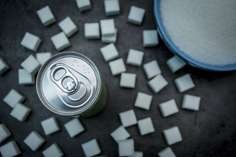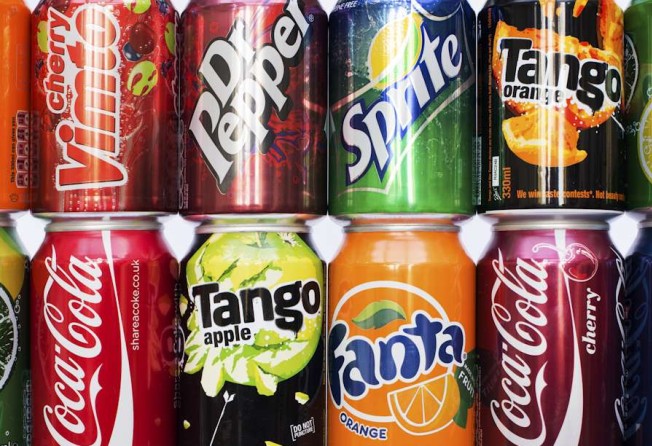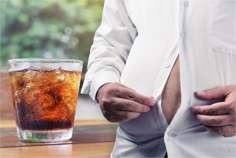
No evidence sugar-free soft drinks help us lose weight, says study of research into diet beverages’ effects
Consuming drinks made with artificial sweeteners may be as big a contributor to obesity as drinking full-sugar versions, academics say, possibly because people assume they can have more of them

Soft drinks made with artificial sweeteners, such as diet colas, do not help people lose weight and may be as big a part of the obesity problem as the full-sugar versions, academics have said.
A paper by researchers at Imperial College London and two universities in Brazil contends that artificially sweetened beverages, often called diet drinks, are just as big a problem as those containing sugar. There is no evidence they help people lose weight, they say, possibly because people assume they can eat more because their drinks are low in sugar.
The report says what goes into artificially sweetened drinks, how they are consumed, and their environmental impact mean that “far from helping to solve the global obesity crisis [they are] a potential risk factor for highly prevalent chronic diseases”.
Sugar-sweetened drinks, including sports beverages, have been identified as one of the major causes of obesity. Many countries, including Mexico and France, have introduced sugar taxes to try to reduce consumption, and the UK plans to do so next year.
Many manufacturers are looking to boost sales of drinks containing artificial sweeteners in order to escape the levy. Such products already account for 25 per cent of the global soft drinks market.
Professor Christopher Millett, senior investigator at Imperial’s School of Public Health, said: “A common perception, which may be influenced by industry marketing, is that because ‘diet’ drinks have no sugar they must be healthier and aid weight loss when used as a substitute for full-sugar versions. However, we found no solid evidence to support this.”

The paper, published in the journal PLoS Medicine, is a commentary on the research done so far into artificially sweetened beverages promoted as healthier alternatives and the impact on weight.
It says the evidence does not suggest they help with weight loss, although they probably do not cause people to put on weight. Some studies show no weight loss; others show a small loss, but those studies were not always well done and were often funded by the soft drinks industry, the authors say.

Maria Carolina Borges, the first author of the study, from the Federal University of Pelotas, in Brazil, said: “The lack of solid evidence on the health effects of ASBs [artificially sweetened beverages] and the potential influence of bias from industry-funded studies should be taken seriously when discussing whether ASBs are adequate alternatives to SSBs [sugar-sweetened beverages].”
The paper argues that “given their negligible nutritional benefits and potential detrimental health impacts”, the environmental impact of manufacturing artificially sweetened drinks should be taken into account. It takes 150-300 litres of water to make one litre of drink, it says, and there is considerable solid waste and cumulative chemical pollution.
Professor Carlos Monteiro, a co-author, from the University of São Paulo, said: “Taxes and regulation on SSBs and not ASBs will ultimately promote the consumption of diet drinks rather than plain water, the desirable source of hydration for everyone.”
The British Soft Drinks Association dismissed the paper. Its director general, Gavin Partington, said: “Contrary to the claims made in this article, scientific research shows that low-calorie sweeteners, such as those found in diet drinks, help consumers manage their weight as part of a calorie-controlled diet.”
Global beverage companies have been investing in soft drinks, flavoured water, juices and ready-to-drink tea and coffee containing artificial sweeteners in response to the obesity crisis and the outcry over sugar. The World Health Organisation has said sugar should not be more than 10 per cent of people’s energy intake, and preferably lower than per cent.
Dr Alison Tedstone, chief nutritionist at Public Health England, said: “Our extensive evidence review showed swapping to low- or no-sugar drinks goes some way to managing calorie intake and weight.
“It’s especially so for young people, as they consume three times the amount recommended, mostly from soft drinks. However, maintaining a healthy weight takes more than just swapping one product for another. Calories consumed should match calories used, so looking at the whole diet is very important.”